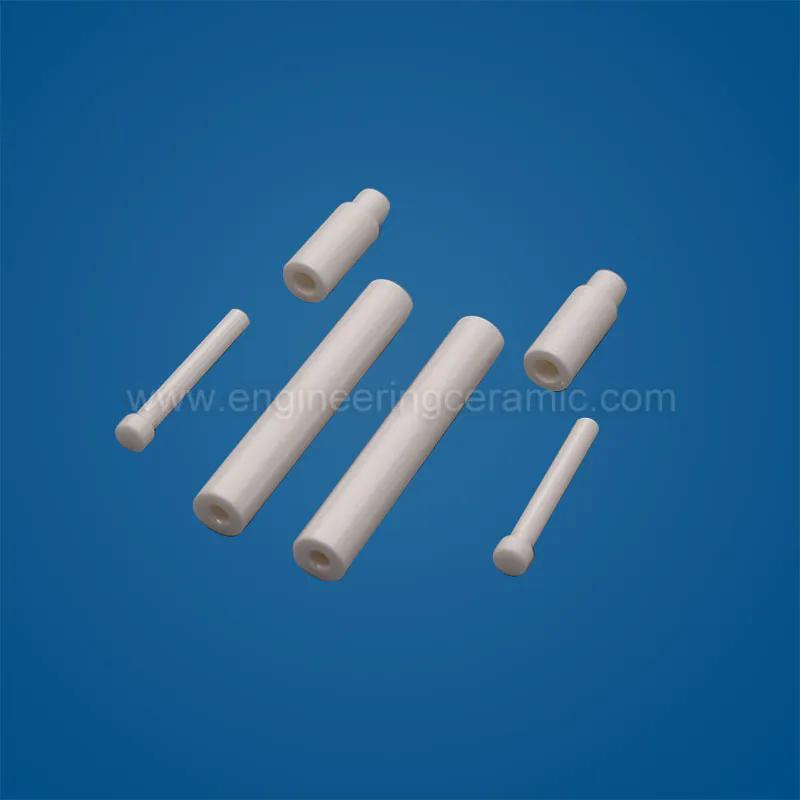The Role of Precision Ceramic Components in Modern Technology
2024-08-21
In the ever-evolving world of technology, precision ceramic components are emerging as crucial elements across a variety of industries. From electronics to aerospace, their unique properties make them indispensable in high-performance applications. In this blog, we'll explore the characteristics, benefits, and applications of precision ceramic components, highlighting their importance in driving technological advancements.
What Are Precision Ceramic Components?
Precision ceramic components are advanced materials made from ceramic substances with high purity and finely tuned properties. These components are crafted to exacting standards to meet the demands of various high-tech applications. Unlike traditional ceramics, which are often used for their durability and aesthetic qualities, precision ceramics are engineered for specific technical requirements, including electrical insulation, thermal stability, and mechanical strength.
Key Characteristics of Precision Ceramic Components
1. High Purity:
Precision ceramics are produced from high-purity raw materials to ensure consistent performance and reliability. The high purity minimizes impurities that could affect the material's properties or performance.
2. Fine Tolerance and Accuracy:
These components are manufactured with strict tolerances and precision to meet the exact specifications required for advanced technological applications. This fine accuracy is achieved through sophisticated processing techniques such as high-precision machining and laser cutting.
3. Excellent Electrical Insulation:
Many precision ceramics exhibit outstanding electrical insulating properties, making them ideal for use in electronic components where electrical isolation is crucial.
4. Thermal Stability:
Precision ceramics are known for their ability to withstand extreme temperatures and thermal fluctuations without degrading. This thermal stability makes them suitable for high-temperature applications.
5. Mechanical Strength:
Despite their brittleness, precision ceramics can offer impressive mechanical strength and hardness, which are essential for components subjected to high stresses and wear.
6. Corrosion Resistance:
These materials are highly resistant to chemical corrosion and environmental degradation, ensuring long-term durability and reliability in harsh conditions.
7. Low Thermal Expansion:
Precision ceramics often have low thermal expansion coefficients, which helps maintain dimensional stability across a wide range of temperatures.
Benefits of Precision Ceramic Components
1. Enhanced Performance:
The precise engineering of ceramic components contributes to improved performance in electronic, mechanical, and thermal applications. Their ability to meet stringent specifications ensures optimal functionality and reliability.
2. Long-Term Durability:
Precision ceramics offer excellent resistance to wear, corrosion, and thermal stress, leading to longer service life and reduced maintenance needs. This durability is crucial for applications in demanding environments.
3. Miniaturization:
The precise manufacturing capabilities of ceramics allow for the production of small, high-performance components, facilitating the miniaturization of electronic and mechanical systems.
4. Improved Efficiency:
In electronic and energy applications, precision ceramics contribute to higher efficiency by providing superior insulation and thermal management, which helps to reduce energy losses and improve overall system performance.
5. Design Flexibility:
The versatility of precision ceramics allows for the creation of complex shapes and geometries, enabling innovative designs and solutions in various technological fields.
6. Cost-Effectiveness:
While precision ceramics can be more expensive initially, their long-term benefits, such as reduced downtime and maintenance costs, often outweigh the initial investment, making them cost-effective over the product's lifecycle.
Applications of Precision Ceramic Components
1. Electronics:
- Insulators:
Precision ceramics are used as insulators in electronic devices, such as capacitors, resistors, and substrates, to provide electrical isolation and stability.
- Semiconductors:
Ceramics play a crucial role in semiconductor manufacturing, including substrates for integrated circuits and components in high-frequency applications.
2. Aerospace:
- Engine Components:
In aerospace applications, precision ceramics are used in turbine engines and other high-temperature environments for their thermal resistance and mechanical strength.
- Sensors:
Ceramic materials are used in various sensors, including pressure sensors and temperature sensors, due to their stability and accuracy.
3. Medical Devices:
- Implants:
Precision ceramics are utilized in medical implants and prosthetics due to their biocompatibility, strength, and resistance to wear.
- Diagnostic Equipment:
Ceramic components are employed in diagnostic devices and imaging systems for their reliability and performance.
4. Automotive:
- Sensors and Actuators:
In automotive applications, precision ceramics are used in sensors and actuators for engine control, emissions management, and other critical functions.
- Braking Systems:
Ceramic materials are used in high-performance braking systems for their thermal stability and wear resistance.
5. Energy:
- Fuel Cells:
Precision ceramics are essential in fuel cells for their conductivity and stability, contributing to efficient energy conversion.
- Thermal Barriers:
Ceramics are used as thermal barrier coatings in energy systems to protect components from extreme temperatures.
6. Industrial Manufacturing:
- Cutting Tools:
Ceramic cutting tools are used for their hardness and durability, providing high performance in machining and manufacturing processes.
- Wear Parts:
Precision ceramics are used in wear-resistant components such as bearings, seals, and liners due to their strength and resistance to abrasion.
Choosing the Right Precision Ceramic Component
1. Identify Requirements:
Determine the specific performance requirements for your application, including electrical, thermal, and mechanical properties.
2. Consult with Experts:
Work with manufacturers or suppliers who specialize in precision ceramics to ensure that you select the right material and component for your needs.
3. Consider Cost vs. Benefit:
Evaluate the long-term benefits of precision ceramics in terms of performance, durability, and efficiency to make an informed decision about the investment.
4. Test and Validate:
Conduct testing and validation to ensure that the ceramic components meet the required specifications and perform effectively in your application.
Conclusion
Precision ceramic components are integral to advancing technology across various industries. Their unique combination of high purity, fine tolerance, and specialized properties makes them essential for applications requiring exceptional performance and reliability. By understanding the benefits and applications of precision ceramics, businesses and engineers can harness their capabilities to drive innovation and achieve superior results. Embrace the precision and performance of ceramic components and elevate your technological solutions to new heights.



